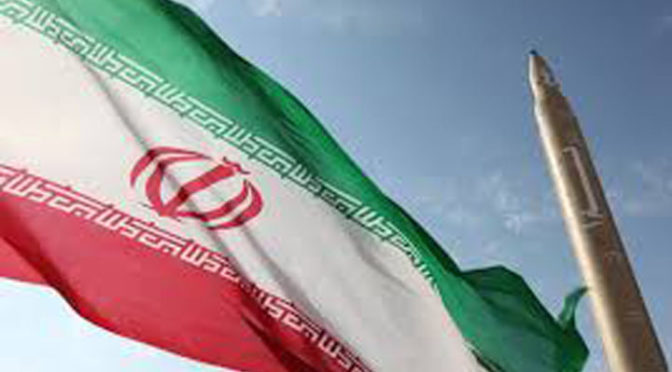IRAN AND THE QUESTION OF NUCLEAR PROLIFERATION IN ASIA.
Posted on : July 15, 2019Author : AGA Admin

Over the past week, Iran has taken centre stage in global politics by exceeding the limit of usage of enriched uranium as per the Joint Comprehensive Plan of Action (JCPOA) of 2015 (also known as the Iran Nuclear Deal). This has been confirmed by the International Atomic Energy Agency (IAEA), in the aftermath of the United States pulling out of the Deal in 2018 and the subsequent imposition of economic sanctions by the latter on the former. What is significant is that at the time of the US withdrawal the IAEA had reported Iranian compliance with the JCPOA. This suggests that diplomatic cutoffs and economic sanctions do not essentially dissuade states from pursuing their national interest (NI). In an interesting turn of events, Iran has demanded support from the European Union (the other signatories of the Iran Deal) to back up the JCPOA agreement while actively moving forward towards eventually developing nuclear weapons capacity.
These recent developments bring to the forefront questions regarding the existing structures of global politics; how a normative smaller state in terms of power perceives and develops itself within this structure; the importance and relevance of nuclear weapons in status quo and finally the need for the evolution of organisational structures within the United Nations.
The only time the world witnessed a nuclear attack was in the final phases of the Second World War at Hiroshima and Nagasaki in 1945 that ended the war and ushered in the era of the Cold War. Since then the dangers and potential mass annihilation capacity of nuclear weapons have been widely discussed and complete nuclear disarmament propagated. Yet, the uneven power dynamics of global politics have helped the P5 nations to maintain a monopoly over nuclear weapons through controversial agreements such as the Nuclear Non-Proliferation Treaty (NPT, 1968). While the P5 claim the maintenance of nuclear weapons as a deterrent against large scale conflicts, the world has seen increasing numbers of Asian states developing nuclear weapon capacity, in a geopolitical context riddled with complex conflicts over religion, ethnicity and nationalism, where the maintenance of peace is far more Byzantine than an ideology battle of two power blocs.
So what does it mean for Iran to pursue a nuclear weapons capacity? Iranian policies, both domestic and foreign are an amalgamation of consensus between the statesmen and the religious clerics led by the Supreme Leader, Ayatollah Ali Khamenei, where the balance of power often tilts towards the side of the latter. From a foreign policy perspective Iran shares complex relations with other states bilaterally. Being surrounded by U.S. backed Sunni Muslim states such as Saudi Arabia, Turkey and Egypt and harbouring a long historical conflict with Israel, Tehran aligns with China mainly serving as a strategic buffer against the U.S. backed bloc in the Middle East. It maintains strategic and diplomatic relations with other major players such as India, Japan, North Korea, Russia, France, Germany and the U.K.This and its oil reserves leave Iran withimmense bargaining power even after the withdrawal of the US from the Deal.
At this juncture it is important to enumerate domestic and international scenarios in the eventual possibility of Tehran developing nuclear weapons capacity. Firstly, there remains the possibility that it could further legitimise the power of the religious and political elite ruling over Iran. Secondly, it could lead to a ‘stability-instability paradox’ in the Middle East with both Israel and Iran in the possession of nuclear weapons that would have the potential to prevent large scale retaliatory attacks but create spaces for the contesting parties to engage in small-scale hybrid conflicts. Thirdly, given Iran’s associations with organisations such as Hezbollah and Hamas, the move may lead to illegal proliferation.
In the subsequent years, Iran may or may not announce the conception of their own brand of nuclear weapons and the world might or might not have to deal with its consequences, but the recent controversy has brought forth the many fallacies and inadequacies of the international order where a ‘nuclear taboo’ cannot be imposed for much longer by the Superpowers on the developing powers of the world, especially in the current age of technological determinism and globalisation.
Shromona Jana
Intern





Leave a Reply